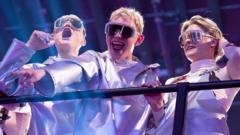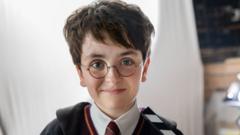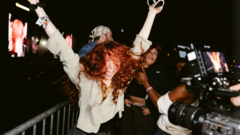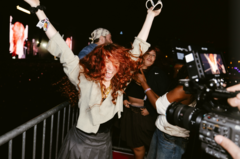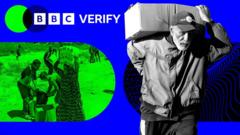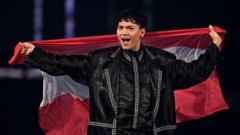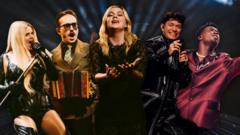Thirty-five seconds. That's the narrow window available for stage transformations at the Eurovision Song Contest. Within this fleeting timeframe, a crew must perfectly execute a series of tasks—from removing one set of performers to seamlessly preparing the next. The behind-the-scenes team, often referred to as the "invisible crew," works against the clock to ensure microphones, props, and lighting are all in place for the upcoming act.
Richard van Rouwendaal, the Dutch stage manager, likens their high-paced efforts to a "Formula 1 tyre change." Each crew member is assigned a specific task, whether it's carrying a prop or adjusting a light fixture, all while maintaining a careful choreography that resembles synchronized ice skating. The crew begins rehearsing their intricate routine weeks in advance of the actual performances, refining their technique to optimize every second.
With an eclectic mix of local talent and Dutch crew members, van Rouwendaal and his team gather in a makeshift staging area that allows them to practice efficiently. The preparations involve careful planning and a strategy that ensures all props and performers flow on and off the stage in a fluid motion.
The stakes are high: a clean stage is paramount for both visual appeal and safety. Backstage, each artist is provided with a personalized microphone stand, height-adjusted before the performance based on the slightest specifications. When issues arise—like changes in footwear or unforeseen staging obstacles—the crew must adapt swiftly, drawing on experiences from previous contests.
Props hold a significant place in Eurovision's history, enhancing performances since the event's inception in 1956. This year, audiences can anticipate an array of creative props from disco balls to intricate stage designs that add visual excitement. Damaris Reist, the deputy head of production, highlights the significance of logistical planning, ensuring every prop elegantly interacts with the fast-paced performances.
Maintaining the illusion of a flawless show is a top priority, and the team has established secret passageways for quick prop exchanges, even during live performances. The crew's unmatched coordination ensures that surprises, such as Sam Ryder's guitar appearing mid-performance, go unnoticed by viewers, thanks to the careful timing of camera shots.
However, the unseen crew's challenges extend beyond mere time constraints and logistics. The enormity of staging a live broadcast has led organizers to implement welfare measures, such as longer breaks and designated "disconnected zones" to protect participants. This year, the stress has been palpable, with extended working hours becoming commonplace.
While the stress of production is unavoidable, the sense of camaraderie among crew members brings a much-needed levity to the intense environment. Van Rouwendaal shares efforts to keep morale high with treats like pancakes and shared outings to celebrate accomplishments. Ultimately, if everything unfolds as planned, the invisible crew's contributions will remain unnoticed, culminating in a spectacular broadcast for millions to enjoy.

